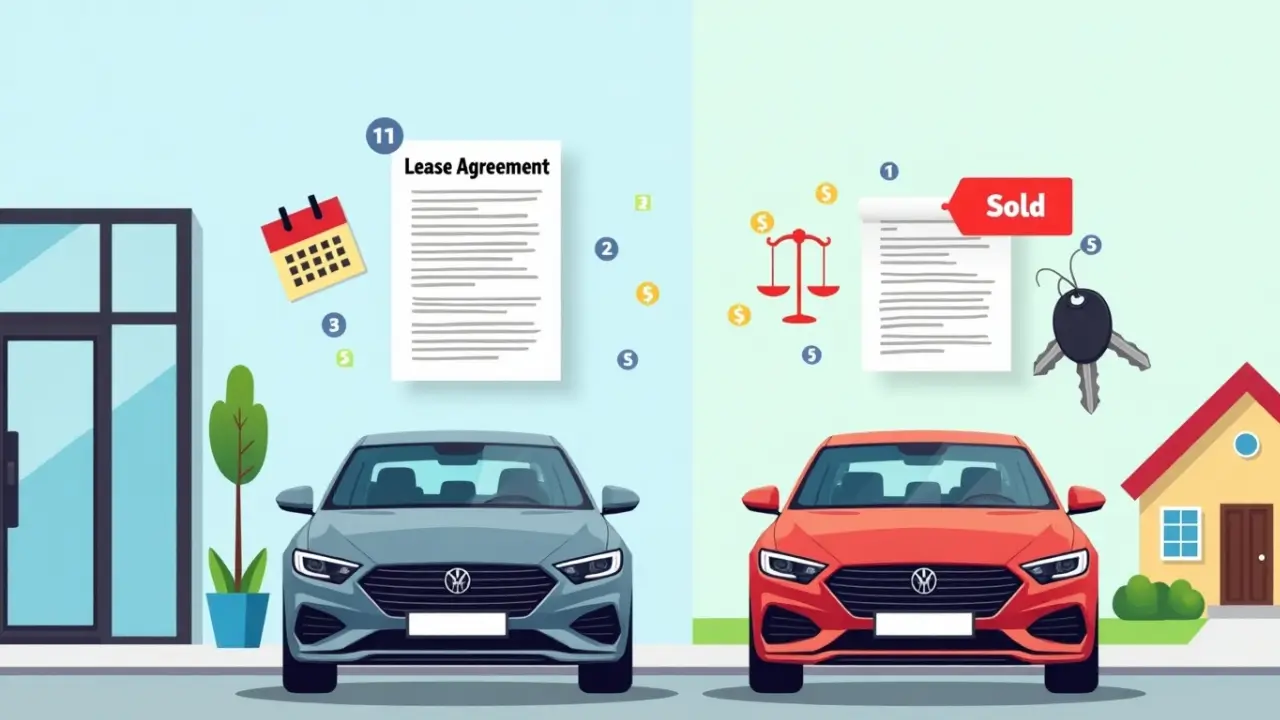Should you lease or buy your next car? Compare costs, benefits, and drawbacks of both options to choose the best fit for your needs.
Introduction
When the time comes to replace your vehicle perhaps the biggest question you will face from a financial standpoint is whether to lease or buy. Each has its advantages and disadvantages as well as long term implications particularly in a fast moving auto market characterized by higher vehicle prices, advanced car technologies and fluctuating interest rates. Your options are going to be greatly influenced by your lifestyle financial goals and how long you plan on keeping the car.
Understanding the Basics
Leasing is in essence a long term rental of a car typically lasting between 24 to 36 months. You are charged a monthly fee to use the car and generally there is a lower upfront investment and a preset mileage limit. At the end of the lease you have the option to return the car or purchase it at a pre arranged price.
When you buy whether for cash or through financing you own the car completely. Monthly payments are usually more expensive than leasing, but you’re owning the car and can keep it as long as you want.
Leasing: Pros and Cons
Pros:
Monthly Payments: typically leases payments are 30-50% less than payments for the same car in the same amount of time.
More Frequent New Cars: Leases typically run 2–3 years so you can always trade up to the latest and greatest vehicle with the most current tech and safety equipment.
Reduced Maintenance Costs: The majority of leases you will ever see will be under warranty the whole time reducing what is coming out of your pocket.
No Resale Hassle: At lease end simply return your vehicle. You skip the selling or trade in process.
Cons:
Mileage Limits: Driving more than the standard 10,000 to 15,000 miles each year may result in expensive over milage charges.
No equity: You are renting the car, pure and simple you are building no equity.
Excess Wear and Tear: Damage to the car could incur penalties when you return it.
Commitment: Exiting before you are supposed is costly and involved.
- Audi GT50 Concept: A Loud Reminder of Why Car Enthusiasts Fell in Love With Audi
- Nearly 30% of UK Drivers Believe Car Tax Should Be Based on Mileage — Survey
- Why Planes and Boats Escaped the Luxury Tax But Cars Didn’t
- Australia’s Headlight Confusion: Authorities Warn Drivers After Viral $250 Headlight Rule Goes Wild Online
- 2025 Hyundai Venue Facelift Launched in India – Full Details, Variants, and Price
Buying: Pros and Cons
Pros:
Ownership: After you have finished making payments the car is yours. And you can drive it for years without monthly payments.
Mileage: Drive as much as you want without reward.
Customization: Customize your car the way you want to without the limitations of a lease agreement.
Long-Term Savings: Though you will usually pay more upfront you will ultimately save money through purchasing.
Cons:
Higher Monthly Payments: Loans generally cost more per month than leases.
Depreciation: Vehicles depreciate quickly particularly in the early years. And if you decide to sell or tradeout early you could lose money.
Maintenance Costs: As with any car as the car ages and warranty runs out you pay for repairs and upkeep.
Long Term Relationship: If your situation changes getting rid of the vehicle may be time and hassle.
Financial Considerations
Credit Score: Good credit is a necessity most of the times. If you have a fair credit score you can be subjected to higher lease rates or even get turned down which makes purchasing a more viable choice.
Down Payment: Along with interest a car loan or lease includes a down payment which is an initial payment that reduces the amount of the loan and affects the size of the monthly payments. But a larger downpayment on a car purchase reduces your monthly payments and your overall interest.
Total Cost Over Time: While leasing may seem like a cheaper option month to month if you continue to do it you will never stop making a car payment. Purchasing and hanging on to your vehicle for 5- 10 years can save you thousands in the long run.
Lifestyle Factors
Driving Habits: If you commute long distances or take road trips its best to buy since there are mileage restrictions on leases. But if you drive less and lust for new features leasing is the way to go.
Technology Enthusiast: Want to stay on brand with the latest gadgets and safety innovations but do not want to be stuck with old tech.
Final Thoughts
There is not a one size fits all answer. A lease provides short term flexibility and lower payments while buying allows a car to appreciate beyond a payment and set car owners free for the long run. Honestly evaluate your finances, driving needs and personal preferences. If you are still unsure consider test driving both options by leasing now and transitioning to buying later once your priorities are clearer.
